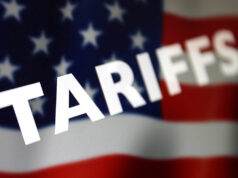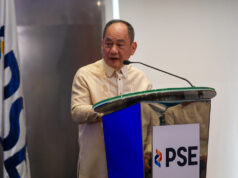BDO completes issue of P7.32 billion LTNCDs at 5.375%
BDO Unibank, Inc. issued P7.32 billion worth of long-term negotiable certificates of deposit (LTNCD), with the proceeds effectively lengthening the average term of its deposit base.
At the ceremonial listing Friday at the Philippine Dealing & Exchange Corp. (PDEx) in Makati City, the bank said it listed P7.32 billion raised from the peso certificates.
The instruments will mature in 5.5 years and carry an interest rate of 5.375% to be paid quarterly until Oct. 12, 2024.
During the offer period, which was cut short by one day on April 4, BDO was met with strong demand from investors, allowing the bank to expand the offer from the original P5 billion.
Like regular time deposits offered by banks, LTNCDs offer higher interest rates. LTNCDs cannot be pre-terminated but can be sold on the secondary market, making them “negotiable.”
Asked to comment, BDO Senior Vice President Jose Paolo Enrique A. Magpale said the funds raised from the LTNCD offering were meant for “general business purpose.”
“BDO is always trying to provide additional investments for our clients. We felt it’s a good time to expand the tenors of the deposit mix, so nothing special,” Mr. Magpale told reporters Friday.
“As you know, the BDO franchise is quite strong in the retail (sector) — the branches do their work, but that’s a different profile. Once in a while, we go to the capital markets just to expand.”
Prior to this offering, the bank raised P8.2 billion also via LTNCDs in April 2018, priced at 4.375%.
Deutsche Bank AG, Manila branch was the sole lead arranger for the fundraising activity. It also acted as a selling agent alongside BDO and BDO Private Bank, Inc.
BDO’s listing brings the total volume of outstanding securities listed at the PDEx to P1.115 trillion, floated by 49 companies.
It also brought BDO’s outstanding listed securities at the PDEx to P69.82 billion, accounting for 21% of the banking industry’s total debt paper listed on the bourse.
BDO booked a record net profit of P32.7 billion in 2018, up 17% from a year earlier, on the back of robust earnings from its core businesses. — Karl Angelo N. Vidal



